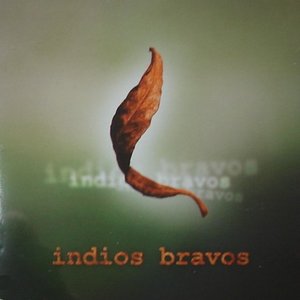But the real beginning was the song "Drogi" which appeared two years later on "Part One". It was Gutek's first album and Banach's tenth but in many ways his first as he recorded it in a way he had never before.
In 2002 a decision about making the second record was made. The first meeting after couple of years took place in much nicer surroundings - somewhere half way between Szczecin and Koszalin in the attic of the house, boarding with the forest, first song for the new album - "Mental Revolution" was born. Later "The Sign" and "The Sun" were polished although Banach got the idea for those two while in Greece.
It's a very cosmopolitan record - two Poles under Spanish-sounding name, recording Jamaican music, ideas of which were first born in France, Greece and Japan. Even if we try to place Indios Bravos' music somewhere in Poland it proofs to be very difficult. Gutek was born, grew-up and lives in Katowice. Banach on the other hand is from Szczecin and lives in Warsaw. Szczecin is also home of the musicians who make Indios Bravos - the live band because from October 2002 Indios Bravos is not just a studio project but a full band set.
The first gig was very humble. Gutek and Banach were supported on stage by Pawel Gawronski (keboard and backing vocals) and Krzysztof Sak (guitar). Later the band expanded and was joined by Ryszard Labul (bass), Przemek Filipkowski (keyboard) and Tomek Kubik (drums).
Kiedy dnia pewnego
Indios Bravos Lyrics
Jump to: Overall Meaning ↴
Trzeba stąd będzie odejść
Bez względu na stan uczuć
Bez względu na pogodę
A kiedy dnia pewnego
Każesz mi przybyć Boże
To z wszystkich swoich wspomnień
Olbrzymi stos ułożę
Yeah yeah yeah
Na samym dole legną
Zabawy w strzelanego
Karate pierwszy zespół
I coś zbyt intymnego
Aby tak mówić o tym
Więc dalej ani słowa
Podwórko kino biwak
Pałac młodzieży szkoła
A potem na stos rzucę
Wspomnienia o miłościach
Rozstaniach i powrotach
Gorących namiętnościach
O wszystkich moich planach
I w plany te zwątpienia
O klęskach i zwycięstwach
I twórczych uniesieniach
Yeah yeah yeah
O bólu który czasem
Usztywnia moje ciało
I o tych wszystkich chwilach
Gdy serce kołatało
Ze strachu bądź radości
Z niewiedzy bądź olśnienia
Tak będę na stos rzucał
Kolejne wspomnienia
A gdy już sięgnie nieba
Bo trochę się przeżyło
To wiem co wtedy powiem
Ech Boże warto było warto było
Warto było warto było
The lyrics of the song "Kiedy dnia pewnego" by Indios Bravos convey a deep reflection on life and the inevitability of departure. The opening lines express a sense of resignation towards leaving one's current situation, regardless of feelings or weather conditions. The repetition of the phrase "A kiedy dnia pewnego" emphasizes the certainty and finality of this departure, suggesting a readiness to move on from something or somewhere.
The mention of God in the lyrics adds a spiritual aspect to the song, as the singer is called upon to come before the divine with all their memories. The imagery of building a "Olbrzymi stos" or a huge pile of memories symbolizes the weight of experiences and emotions that have accumulated over time, ready to be offered up for reflection or release. The refrain "Yeah yeah yeah" punctuates these introspective moments, perhaps serving as a reminder of acceptance or acknowledgment.
As the song delves deeper into memories, the lyrics describe a process of sorting through past experiences and emotions. References to childhood games and intimate moments are juxtaposed with scenes of adolescent hangouts and romantic entanglements. The imagery of a "Pałac młodzieży szkoła" or a youth palace school paints a nostalgic picture of youthful innocence and exploration. The lyrics suggest a willingness to let go of both joyful and painful memories, in order to make space for new beginnings.
The final verses of the song reflect on a life well-lived, with the singer acknowledging the highs and lows, successes and failures, and the creative highs experienced along the way. The mention of physical pain and emotional upheaval highlights the rawness of human experience, while also celebrating moments of joy and revelation. The act of throwing memories onto a metaphorical fire symbolizes a cathartic release, a shedding of the past in order to embrace the present and future with clarity and gratitude.
In the closing lines, the singer expresses a sense of fulfillment and acceptance towards the end of their journey. The phrase "Ech Boże warto było warto było / Warto było warto było" encapsulates a sentiment of contentment and gratitude for a life fully lived, with all its trials and triumphs. The repetition of "worth it" emphasizes the value found in experiences, relationships, and personal growth, suggesting a sense of peace and satisfaction in looking back on a life with a sense of purpose and fulfillment.
Lyrics © O/B/O APRA AMCOS
Lyrics Licensed & Provided by LyricFind
